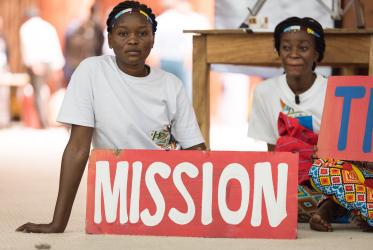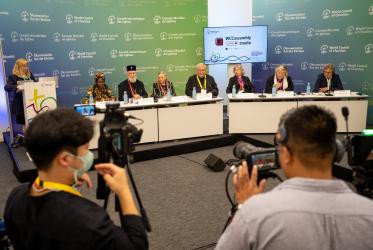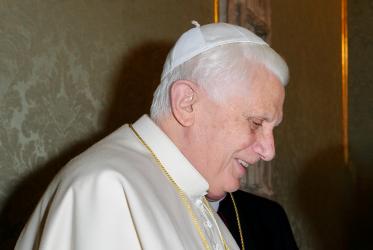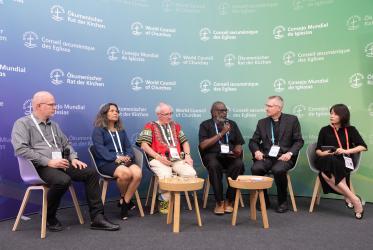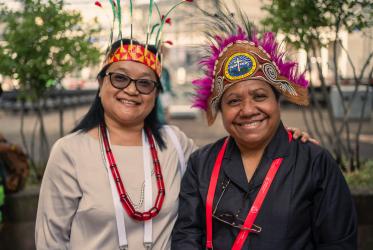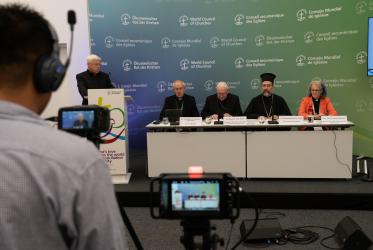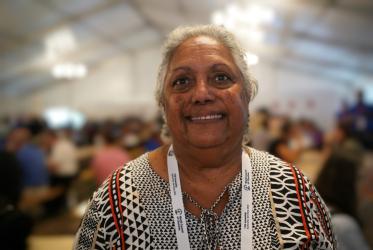Displaying 1 - 20 of 169
30 November 2023
Thirty days that changed the ecumenical movement
23 October 2023
Pope Emeritus Benedict XVI leaves a legacy of ecumenical dialogue
31 December 2022
WCC 11th Assembly: safe and welcoming environment for all
19 September 2022
Promoting human dignity through art
06 September 2022
Indigenous women struggle for identity in Asia and beyond
05 September 2022
Women with disabilities want to belong in churches
31 August 2022





